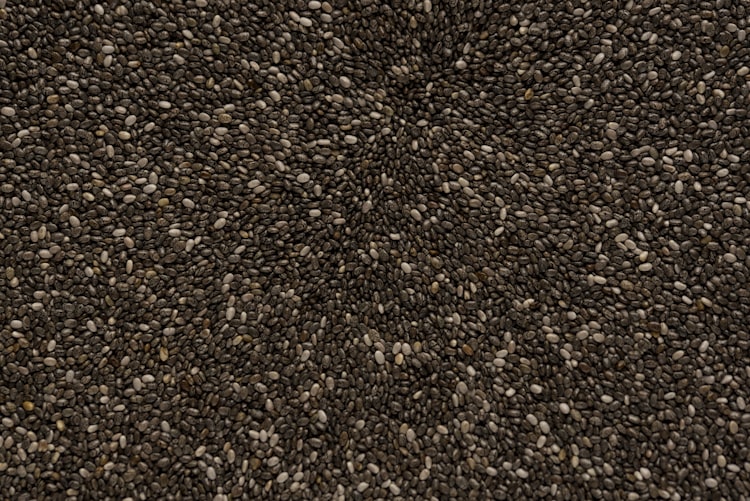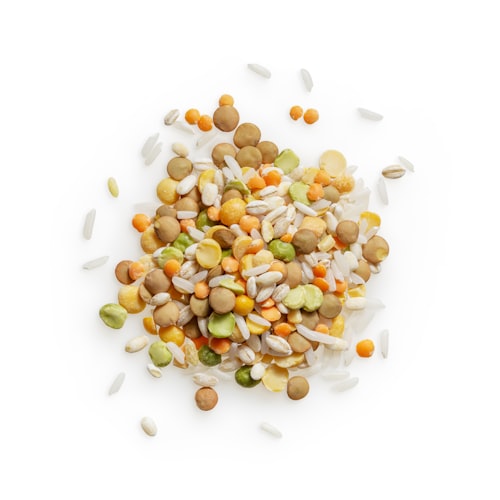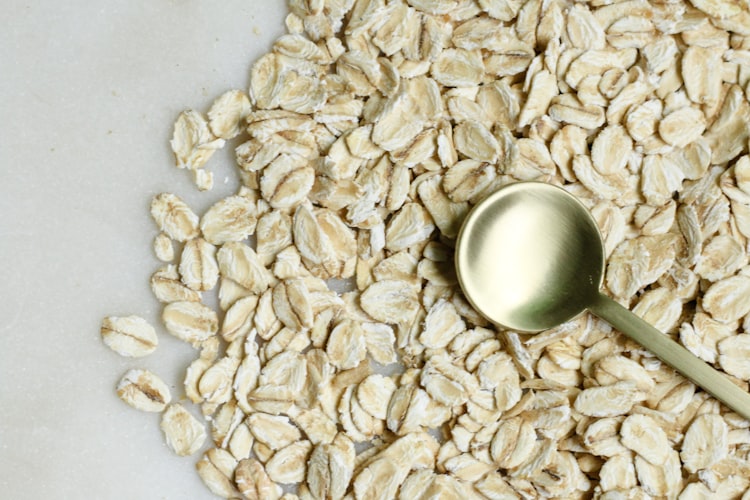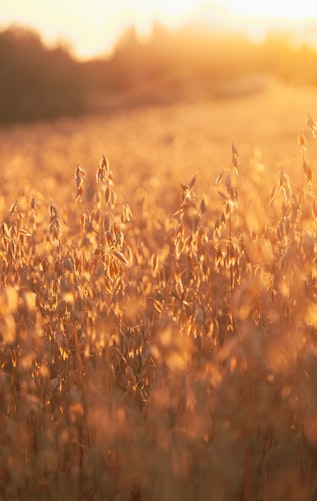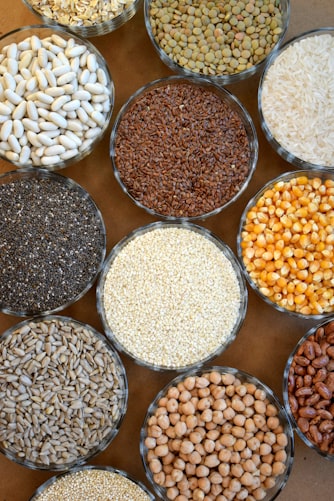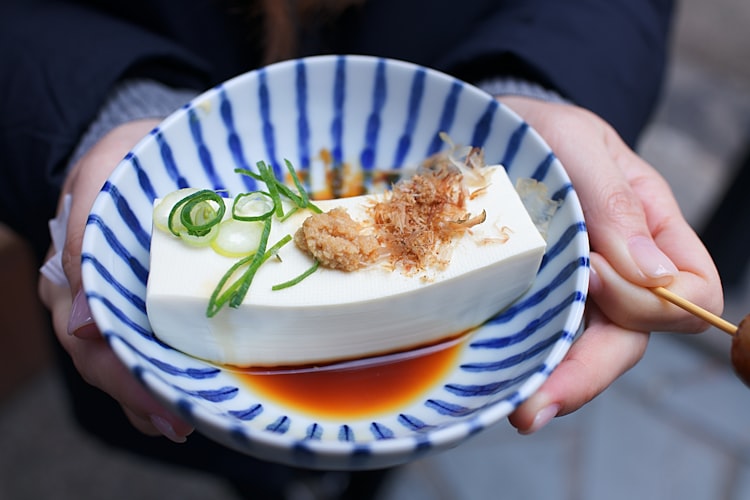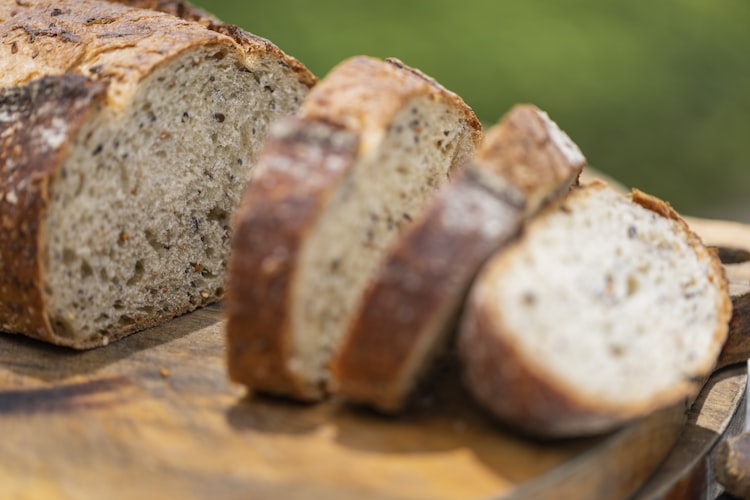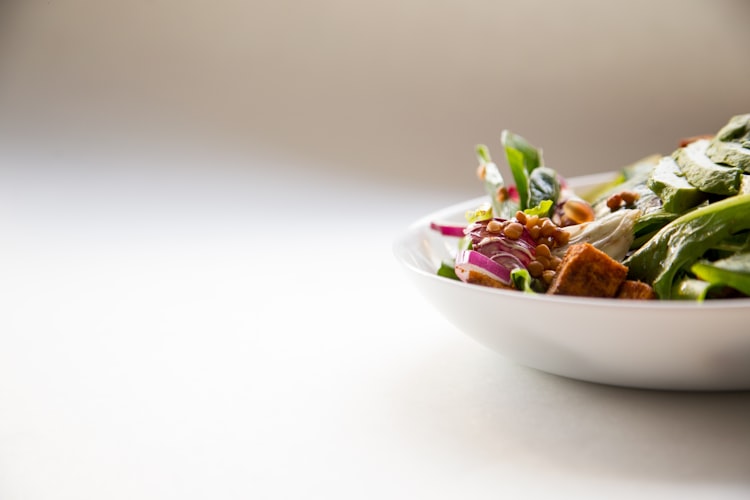
When people consider the plant-based diet, they often wonder, where do these people get their protein from. If you don’t eat meat, then where do you get your protein from? This is highly held question about the vegan diet. The fact that it may lack protein is probably why you have found yourself on this page, reading this word to word. The truth of the matter is, there are a plethora of protein sources for vegans, eating a combination of which will provide exactly what your body needs.
What is important is that you ensure to include as many plant-based proteins sources as you can and mix them up. This will allow you to attain complete protein from the diet, all the amino acids that your body needs. It also works to enable you to keep your meals interesting. No one likes eating the same thing every day.
Vegan protein sources are an integral part of a balanced plant-based diet. Amino acids are the building blocks for muscles and tissues and work to even aid in the function of the immune system. Hence, it is absolutely integral that you consume several protein-rich foods.
There are nine essential amino acids that your body needs and it can be difficult to source all nine amino acids from a single plant. This is why it is essential that those on a plant-based diet include a variety of protein sources that are high in healthy proteins and fats that will enable you to acquire all the nutrients that your body needs to function effectively.
Sources of Vegan Protein
There are so many sources of plant-based protein that as a vegan, you would really start to enjoy sourcing your protein. Ranging from nuts and seeds to legumes and soy products, all sources of vegan protein have a varied amount of protein in them.
Here is our list of the top 30 protein sources for vegans, to incorporate into your plant-based diet.
1. Nuts and Nut Butter
Regardless of what nut you consider, they are all nutrient-dense, rich sources of vegan protein. Almonds, peanuts, cashews, Brazil nuts, pecans and walnuts all pack a good amount of protein.
Nuts can make a great snack and can be used as a topping, added to a salad or mixed into the ingredients of a soup, sauce or stew. They add an element of thickness and richness to the dish.
Nut based flour such as almond flour can be great for baking and can be used to make plant-based almond milk and cheese.
Nut butters are also rather easy to make. Almond butter or peanut butter both contain a good amount of healthy protein. However, with nuts, the thing that you have to keep in mind is that they are high in fats and calories. Hence, when you are enjoying nuts, be sure to consume them in moderation.
A 1/4 cup of almonds which is about 28 grams contains about 10g of protein.
2. Hulled Hemp Hearts
The hulled green and cream coloured seed that is removed from the hemp plant has a nutty and earthy taste, which can work as a delightful ingredient in many dishes.
You can add hemp hearts to the top of porridge, or enjoyed mixed in with a plant-based yoghurt. It also works really well in a smoothie or a salad.
With 3 tablespoons which is about 30 grams of hulled hemp hearts containing 10g of protein, it is easy to see how they can be a reliable protein source for many vegans.
3. Pumpkin Seeds
Often used in Mexican cuisine, pumpkin seeds are delicious green roasted seeds that work really well as a snack.
It is an excellent source of magnesium with about 74 milligrams in every 2 tablespoons. They have a nice crunch which works really well in salads and soups. The fact that they contain a good amount of protein is complemented by the fact that they are an excellent fibre source.
A 1/4 cup serving of pumpkin seeds which is about 30 grams contains 10g of protein.
4. Chia Seeds
Chia seeds come in either black or white and are tiny rounded seeds that are loaded with nutrients. When chia seeds are combined with liquids, they create a swollen outer coating which produces a thickening effect.
Neutral in flavour, chia seeds have a jelly-like texture and add a crunch to the dishes when added. They work really well in drinks, smoothies and puddings and can be an excellent source of fibre and not to mention protein.
A 1/4 cup serving of chia seeds, which is about 36 grams contains about 6 grams of protein.
5. Flaxseeds
An excellent source of omega-3 fatty acids, flaxseeds are a beautiful golden or brown seed that provides the body with a reliable source of protein and fibre.
You can find flaxseed in ground form or in whole. Flax eggs which are made by combining ground flaxseeds with water and allowing them to thicken, is used as an egg substitute in baked goods.
Flaxseeds can be mixed in with a salad, added to soup or even stews. Simply sprinkling flaxseeds into your snacks or beverages could work to boost up the nutrient profile, giving your body an extra advantage.
A 2 teaspoon serving of flaxseeds which is about 13 grams, contains 3g of protein.
6. Quinoa
This superfood is the seed of the goosefoot plant found in the Andes Mountains and is one of the few plant-based foods that provide the body with all nine essential amino acids. This makes Quinoa a sure to include for anyone following a vegan lifestyle.
The seeds have a nutty taste and should be washed before cooking to remove the bitter flavour from the protective coating of the seeds. Quinoa is a mix of yellow, black and red coloured seeds and is cooked like rice. It works really well as a side dish and can even be used to make plant-based burgers.
A 1/4 cup of quinoa which is about 43 grams contains 6g of protein. Remember, it contains all nine essential amino acids which your body needs.
7. Farro
This ancient grain is an excellent source of dietary fibre and is a reliable source of protein and iron.
You can cook farro by boiling it and then simmering the contents until the grains are tender. Farro works really well when added to soups and stews. It can also be a good addition to salads.
A 1/4 cup of farro which is about 13 grams contains 7g of protein.
8. Amaranth
This gluten-free grain is loaded with protein and is found native to Peru. It contains an excellent amount of fibre which aids digestion and is also a reliable source of plant-based calcium.
The grain has a nutty and toasted flavour and the flour can be used in cooking. It is cooked at a ratio of 1/2 cup amaranth to 1 and 1/2 cups of water. The amaranth is allowed to boil and is simmered uncovered.
You can use amaranth flour in baking and the grain work really well as a breakfast porridge. It works as an excellent replacement for rice and can be a reliable source of plant-based protein.
1 cup of amaranth which is about 246 grams contains about 9.4g of protein.
9. Rice
Based on the type of rice that you choose, the taste of the rice will vary and so will the nutrient profile. Though brown rice takes longer to cook in comparison to white rice, it is generally considered healthier. This is because brown rice tends to retain more nutrients.
You can find a variety of grains of rice, some long, some medium and some short-grain strains. They all yield different textures when cooked. Red rice and black rice are also available which are considered better for they contain additional antioxidants.
Rice can be a reliable source of protein with 1 cup of brown rice containing about 4.5g of protein.
10. Oats
This popular breakfast choice is an excellent source of protein and is chosen by many athletes as their prefered choice of breakfast. They contain both soluble and insoluble fibre and beta-glucans.
Oats have an excellent balance of protein, fat and carbohydrates which is why they are known as whole-grain food.
The nutrient profile of oats varies on the type of oats that you choose and the brand of oats that you go with. The typical steel-cut oats are precooked and dried. Hence, you can eat them as porridge. You can even make oat milk with oats or even add them to snacks to provide additional nutrients.
A 1/2 cup serving of oats which is about 48 grams contains 7g of protein.
11. Barley
Barley is famously used in the making of beer. This doesn’t mean we are recommending that you drink beer to meet your protein requirements.
Barely when eaten has a nutty flavour and is loaded with protein and fibre. It can be found bran intact which is known as hulled or bran removed which is known as pearled. Pearled barley cooks much quicker than hulled barley.
You can easily add barley into your salads or soups. It even works really well as an alternative to rice and brings with it a lot more protein.
A 1/4 of barley which is about 50 grams contains 15g of protein.
12. Freekeh
This grain made from immature durum wheat has a nutty and smoky flavour. It has twice as much protein as white rice and three times as much fibre.
It is close to quinoa in the macronutrient profile and can be purchased whole or cracked. To prepare freekeh, you can boil it until tender and ready to serve. It is popularly eaten in Mediterranean and North African cuisines and works really well in salads and pilafs.
A 1/4 cup serving of freekeh which is about 46 grams contains 7g of protein.
13. Wheat Berry
These are whole kernels of wheat that have not been processed. Since they aren’t processed, they contain a better nutrient profile.
Though they take longer to cook, they contain an excellent nutrient profile that provides your body with good portions of proteins, carbohydrates and fats. It can work really well in salads or soups or can be served as a side dish.
A 1/2 cup serving of wheat berries which is about 83 grams contains 9g protein.
14. Bulgur Wheat
They are made of parboiled or steamed wheat kernels or berries. They are then dried to allow some of the bran to be removed and then further ground.
Bulgur wheat has a neutral taste and can cook rather quickly in comparison to other grains. It should be rinsed before cooking to remove the excess starches.
Bulgur wheat works really well as an alternative to rice and can be used in a variety of dishes.
A 1/4 serving of bulgur wheat which is about 42 grams contains 3g protein.
15. Seitan
Seitan is better known as ‘wheat meat’ and is made from wheat gluten. The texture of seitan is very chewy and resembles that of chicken or beef.
They are sold in slabs or pre-cut slices or cubes and can even be found pre-seasoned. You can marinate them, coat and fry them or even use them in stir-fries. They work really well as meat alternatives and can be a valuable source of protein.
8 ounces of seitan which is about 227 grams contains about 56g of protein.
16. Textured Vegetable Protein
These are crunchy soybean flakes that work really well as meat alternatives. Also known as vegetarian meat, you can make a variety of dishes with textured vegetable protein.
You can use them in mixes for tacos and can make some amazing sandwiches with them. They also work really well if you are for instance trying to make meatballs or meatloaf.
It is gluten-free, packed with protein and is a very versatile ingredient.
A 1/4 cup of textured vegetable protein which is about 24 grams contains 12g of protein.
17. Tempeh
Made from fermented cooked soybeans, Tempeh is an excellent source of plant-based probiotics. They are often made with a mixture of grains and uses flavouring agents to give tempeh its taste.
You can even find soy-free versions of tempeh.
Tempeh has a nutty flavour and usually holds the shape when cooked. It can be marinated and used in stir-fries. You can make sandwiches with them or cut them into slabs and grill them like steaks. Tempeh is a valuable source of protein and if you can get your hands on it, you should most certainly include it in your diet.
An 8 ounce serving of tempeh which is about 227 grams contains 42g of protein.
18. Edamame
Edamame is immature soybeans and is a valuable part of Japanese cuisine. They can be a good source of protein and fibre.
To prepare edamame, you have to boil or steam them before serving. They are similar to peas and can work as a great snack. You can even add them to salads or stir-fries. Edamame also works really well as a side dish for your meal.
A 1/2 cup serving of edamame which is about 75 grams contains 9g of protein.
19. Tofu
Made from soybean, tofu is a popular source of plant-based protein. It is made from pressing the soymilk curds into solid slabs. It is the pressing mechanism that defines the type of tofu.
Based on the amount of time the tofu is pressed for, the amount of coagulant and whey that is removed, you could have in your hands silken tofu, soft tofu, firm tofu or extra firm tofu.
It has a lightly sweet and nutty flavour and is popular for its versatility. You can cut them into cubes and bake them, marinate and fry them, grill them. They can even be sauteed or stir-fried. It is so popular because the number of dishes that you can make with it is simply endless.
A 4-ounce portion of tofu which is about 112 grams contains 12g of protein.
20. Soybeans
Soybeans are one of the highest consumed food and for good reason. They are an excellent source of plant-based protein and provides all nine essential amino acids.
These soybeans are used to make soy milk, tempeh, tofu and even textured vegetable protein. Soybeans can be added to a salad or soup and work really well in dishes to add a protein tangent.
A 1/4 cup serving of soybeans which is about 43 grams contains 15g of protein. Remember, it provides your body with all nine essential amino acids, which is why it is so valuable.
21. Peas
Peas are a reliable source of plant-based protein. Pea protein as a result has become an essential part of a vegan and vegetarian diet, with many vegans tend to include peas in their meals.
Peas can be found fresh, frozen or canned. Further to the fact that they are a valuable source of protein, they also contain wholesome amounts of fibre.
They are easy to prepare and can be added to soups, stews and rice dishes. Peas are a very versatile ingredient and you can incorporate them in many dishes.
A cup of peas which is about 98 grams contains 1.76g of protein.
22. Lentils
Lentils vary in colour and size and come in dried form. There are many types of lentils such as brown lentils, green lentils, red lentils, yellow lentils, black lentils and Lentils du Pu.
They are easy to cook and usually only requiring boiling until tender. They can be added to soups, mixed into a stew or tossed into a salad. They also work really well as sides to your meals.
A valuable source of protein for vegans, a 1/4 cup of lentils which is about 50 grams contains 13g of protein.
23. Chickpeas
Chickpeas are a staple legume in the Mediterranean and Middle Eastern cuisines. It is an excellent source of carbohydrates, protein and fibre.
They have a mild flavour and can be a popular snack when baked until crispy. You can add them to salads and can even be used to make hummus, which is a dip.
The liquid from canned chickpeas is often used as an egg substitute in baking.
A good source of plant-based protein, a 1/2 cup serving of chickpeas which is about 120 grams contains 6g protein.
24. Beans
Beans are affordable and readily available, which is why they are such a popular source of plant-based protein. Further to this, they are extremely versatile and is loaded with protein and fibre.
Canned beans are convenient and can be prepared in a short period of time. There are so many options of beans such as black beans, pinto, kidney beans and cannellini.
They work really well in burgers and can be added to salads, soups and stews.
Beans are a reliable source of protein. For instance, a 1/2 cup serving of black beans which is about 130 grams contains 10g of protein.
25. Spirulina
This blue or green algae is an excellent source of plant-based protein. They also contain a wholesome amount of other nutrients such as iron, B vitamins and manganese.
They are found in powdered form and can even be purchased as supplements. You can simply mix spirulina with water and drink it. For added flavour, you can add them to smoothies or fruit juices for a protein punch.
You can even sprinkle spirulina over a salad or on a snack to increase the protein content. 2 tablespoons of spirulina contains 8g of protein.
26. Mycoprotein
Mycoprotein is a fungus-based protein source that works really well as a meat substitute. They are even found in the form of chicken nuggets or cutlets. However, as a vegan, you have to be careful when you purchase these products for some of them contain egg whites.
Though this is a valuable source of protein on a vegan diet, people with a history of mushroom allergies should be careful. These people may be allergic to Fusarium venenatum, a fungus that is found in various brands of mycoprotein.
A 1/2 cup serving of mycoprotein contains about 13g of protein.
27. Potatoes
This common vegetable which is popularly eaten by many people around the world is a good source of protein and other nutrients. Further to protein, potatoes contain other nutrients such as potassium and vitamin C.
Potatoes are versatile and can be prepared in a variety of ways. You can cook them, stir fry them or even boil them and add them to a salad. They even work well to make plant-based burgers.
A large baked potato usually contains about 8g of protein in the serving.
28. Ezekiel Bread
This is a nutrient-dense alternative to traditional bread. Made from barley, wheat, spelt, millet and lentils, Ezekiel bread is an excellent choice for bread lovers who are looking for more nutrients.
You can enjoy Ezekiel bread in any way you would enjoy regular bread. You can toast them, make sandwiches with them and can even spread some protein-rich peanut butter or almond butter to further enhance the meal.
Each slice of Ezekiel bread contains about 4g of protein.
29. Nutritional Yeast
This deactivated strain of Saccharomyces cerevisiae yeast is found commercially available as a yellow powder or flakes.
What is great about nutritional yeast is the cheesy flavour it has. Hence, it becomes an integral ingredient in the making of plant-based cheeses. You can even top of dishes like mashed potatoes and scrambled tofu with some nutritional yeast.
It works really well as a topping and can be sprinkled on pasta dishes to enjoy a cheesy flavour.
It is a complete source of high-quality plant-based protein and provides the body with 2 grams of protein in one tablespoon.
30. Spelt and Teff
These are ancient grains much like farro and barley. While spelt contains gluten, teff is gluten-free.
They are both excellent sources of protein and are packed with other nutrients. They contain various complex carbohydrates, fibre, iron, magnesium, phosphorus and manganese. They also contain a good amount of B vitamins, zinc and selenium.
Spelt and teff are versatile alternatives to common grains such as rice and can be used in many ways. You can make baked goods with them or even make risotto and polenta with them.
A cup of spelt and teff which is about 240 grams contains 10g to 11g of protein.
Protein Sources For Vegans
As you may have realised, there are so many choices when it comes to plant-based protein, that the fact that you have to eat meat to get all essential amino acids is rendered a myth. That being the case, it may become difficult to source all essential amino acids on a vegan diet. That is why you should include as many of these protein sources into your diet.
Some of the sources we mentioned here work well as staple dishes while others work better as snacks. Some were even toppings that you could sprinkle on the top of your dishes to boost the protein content.
Sourcing protein on a vegan diet doesn’t have to be hard. You just have to ensure that you way well informed and understand what you should include as integral elements of your plant-based diet.
We hope you found this article insightful and that reading this word to word has helped to uncover some valuable plant-based protein sources.
Happy Munching!




